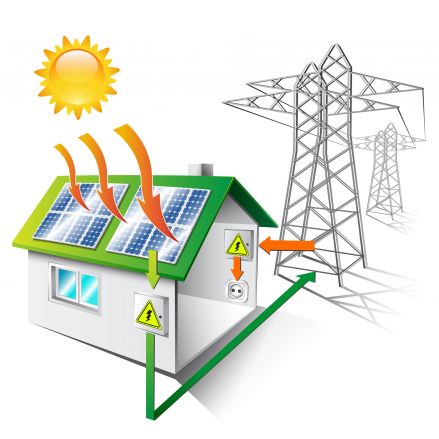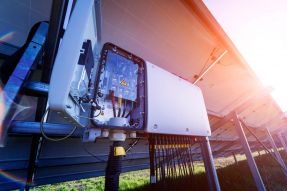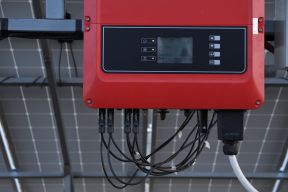Solar Panel System For House New Jersey | Residential Home Solar Panels Systems
The sun is a powerful source of energy. It can heat your home and power your electronics. Nowadays, there’s a new way to harness that power: solar panels! The cost of these systems has dropped significantly in recent years, making them an affordable option for homeowners who want to save on their electric bills.
Solar panel system for house
A solar panel system can be used for different purposes. It can generate electricity, which is sold back to the utility company. It can generate electricity, which is consumed at the house. Or it may be used for both purposes.
Furthermore, another way to use a solar panel system is to store your excess energy in something called a battery bank. Some people install solar panels because they want to try and cut down on their electric bill each month. The good thing about this type of system is that it’s easy to maintain and requires little upkeep. This is the most basic form of the solar panel system.
What’s great about this is that it doesn’t just benefit you – it helps the environment as well. This type of system for home doesn’t produce any emissions, noise, or residual waste when in operation. It’s also less expensive than conventional power sources. Solar power systems are the ideal choice for homes that want to conserve energy and be cost-efficient at the same time.
What are the different types of home solar panel systems for homes?
While there are many types of solar panels systems for homes, some of the most popular include: Grid connect system and an off-grid system.
What is a grid-connected solar system?

A grid-connected solar power system simultaneously uses solar energy stored in battery packs to supply an alternate source of electricity. The inverter involved with the grid-tie connection acts as an interface between the solar panels and utility power lines. This system recharges its batteries using electricity from the utilities to provide power during low or no sunlight periods. This types of system are more efficient than running on battery power alone because it has access to a backup supply when needed.
What is an off-grid solar system?
An off-grid solar panel system is a type of solar power system that does not connect to any utility lines or grids. These solar systems are designed for areas with no electricity, and they usually consist of one large battery bank made up of deep cycle batteries. The battery bank stores the energy collected from the panels installed on the rooftop while an inverter converts it from DC to AC. Operating independently from the grid, stand-alone, or off-grid systems requires good sunlight and weather conditions to function well.
How do they work?
Solar panels work by collecting sunlight, which is then converted into electricity. The electricity produced by the panels is then stored in batteries. If you are connected to a grid-tied or utility power source, your inverter acts as an interface between both sources allowing you to receive energy when you need it. This system recharges its batteries using electricity from the utilities to provide power during low or no sunlight periods.
This energy collection and storage method allows you to effectively reduce utility bills while using sustainable, environmentally friendly energy production methods. It also benefits the environment by reducing greenhouse gas emissions that result from power generation.
A single solar panel on your roof or in your yard can produce anywhere from 100 watts to 400 watts of power at a given time, which can provide enough energy for lighting and other appliances within your home.
What are the main components of a solar energy system?
A solar energy system is made up of three main components: the solar panels, the inverter, and the battery bank. The solar panels convert sunlight into electrical current, the inverter converts that current into usable AC power, and the battery bank stores the energy for later use.
Solar panels
Solar panels are the most visible component of a solar panel system and work by capturing sunlight and converting it into electricity. The electricity produced by the panels is then stored in solar batteries.

Inverter
The inverter is an electrical box that takes power from your batteries and converts it to a standard household current. Solar inverters can be used with all systems that use batteries.
Monitoring system
A monitoring system can provide you with information about the status of your power generation and your energy usage and storage capacity.
Racking system
A racking system is used to hold your solar panels securely in place. It is recommended that you have professionals install your solar panels to ensure they are correctly installed.
With the right equipment, installing a solar panel system can yield significant savings on utility bills while benefiting the environment with sustainable energy production methods.
Battery bank, wiring, charge controller, and accessories

These are additional components that are necessary for your power generation system. The battery bank provides storage capacity, the wiring transfers current from the solar panels to the inverter and other devices, and accessories such as fuses and inverters are included with your system for optimal function.
Solar PV panel systems have been built in homes worldwide to provide sustainable forms of energy for day-to-day living. When you are ready to start using solar energy in your home, do some research and find qualified companies that can provide you with a free estimate on what it will cost to install a solar array.
How much does a solar panel costs for a 2,500 sq. ft. house installation?
The size of the system you will need for your home depends on how much energy you use. Typically, a 2,500 square foot house uses about 3 kW of electricity per month. The average cost to install a solar panel system is between $15,000 and $25,000. However, the amount you pay for a system is negotiable due to available government incentive programs. The solar incentive program includes federal tax credits and rebates from your local utility company. The average yearly savings for this size of a house is approximately $1,050 per year. This covers not only the cost of home solar installation but also reduces your monthly electricity costs.
Also, most home solar panel systems come with a warranty that covers the replacement or repair of specific components. The warranty length varies from company to company, but rest assured that it will protect you if your power generation system isn’t running correctly.
How much does one solar panel cost?
The cost of a solar panel can vary depending on the size, type, and brand of the panel. However, on average, one solar panel costs around $200.
Some factors that can affect the overall cost of a residential solar panels system include the following:
- The size of the system
- The number of panels needed
- The type of systems for home
- The brand of the panels
- The installer’s fees
- Any tax credit incentives or rebates available
It is important to note that while the initial cost of a home solar system may be expensive, over time it can save you money. In many cases, a solar panel system will pay for itself in electricity savings in less than 10 years. A solar calculator can help you estimate how much a solar panel system could save you.
You can also get an instant, personalized solar panels cost estimate specific to your location and energy needs before you buy a solar panel system.
FAQs
Will my solar electric system be connected to the grid?
If your solar electric system is connected to the grid, it will connect to the main power line, and the electricity from your solar module will be provided back to the power company. When you buy a grid-connected system, you typically have a contract with your power company that determines how much credit you receive for sending electricity into the grid. Some states require these electric companies to pay for excess energy transmitted into the grids.
Is it possible to finance the purchase of a rooftop solar panel system?
Yes, it is. You can finance your system by either taking out a loan or signing up for a power purchase agreement (PPA). With the PPA, you typically pay no money down and enjoy savings on your electric bill every month. Solar loans are also available, and they can offer either a fixed or variable rate of interest.
How long does a residential solar energy system take to install?
Typically, installing solar panels can take two to three weeks to complete depending on your utility company. The size of your system will determine how long it takes for professionals to install your solar energy system.
What are the tax credits for residential home solar systems?
There are credits available to people who purchase residential home solar systems. You may receive a federal tax credit of 26% of the system, and individual states often have their tax credit for renewable energy purchases.
What is the average solar panels cost per watt for a residential solar panels system?
The average solar panel cost of a home solar renewable energy system is between $3 and $5 per watt of power it can produce. This number would include the total cost of everything that goes into that installation, including labor costs and tax credits. Additional equipment like inverters or batteries is not included in this calculation.
How can I tell if my home qualifies for rooftop solar PV panels?
Typically, your home should be able to get enough sunlight. If it’s facing south and there aren’t too many trees blocking the light, you’re on the right track! You can also talk to your solar panel installation company or a local contractor to see which direction you will need to face your panels to get the most sunlight exposure during the day.
Can you get a home solar panels system if your roof doesn’t qualify?
Yes. If you have a flat-roofed home, you can install ground-mounted solar panels in your yard to take advantage of the sun’s energy. You can also talk to the installer about which options would be best for your property and needs. Home solar panels will give you a zero-emission energy source to power your home with.
